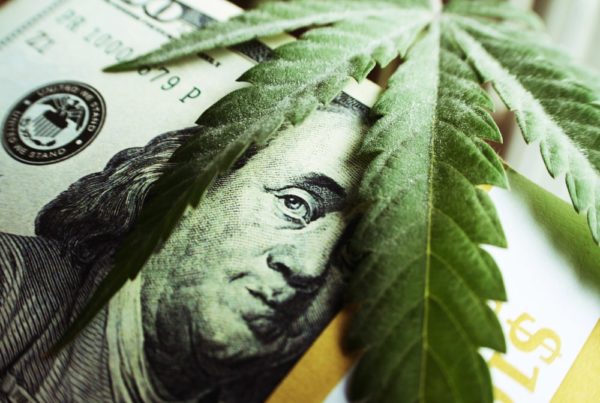Would you like to open a medical marijuana dispensary in Georgia? In the article below, our Georgia dispensing license consultants provide a step-by-step guide to the full application process.
But first, let’s take a look at the broader scope of the Georgia cannabis dispensing license program.
Georgia Dispensing License Consultants
Laws and Regulations
To fully understand the requirements for obtaining a cannabis dispensing license in Georgia, you should acquaint yourself with its cannabis acts, laws, and regulations. Moreover, doing so will help you understand the types of licenses available, as well as the application process and operational requirements. Of special note, Georgia became the first state to allow independent pharmacies (not chains) to dispense medical marijuana from licensed producers.
Secondly, to become a successful Georgia dispensing license owner, we suggest you regularly visit Georgia Access to Medical Cannabis Commission (GMCC, or the “Commission”). This state agency licenses and regulates all Georgia cannabis businesses.
Below are links to the most pertinent cannabis acts and regulations:
- Adopted Amendments to Commission Rules, Chapter 351-6, Dispensing Licensees (2023)
- Department 351, Chapter 351-6. Dispensing Licensees (Rules and Regulations of the State of Georgia)
- Georgia Law – Commission statutes (Official Code of Georgia Annotated)
O.C.G.A. § 16-12-200 through O.C.G.A. § 16-12-236 - Senate Bill 195 (2021)
- Georgia’s Hope Act HB 324 (2019/2020)
Now that you know where to find the laws, let’s discuss the timeline for applying. Due to litigation, and a nearly two-year delay, Georgia recently issued dispensary licenses to previously awarded Class 1 and Class Producer licensees. Now is the chance to set in motion obtaining a new dispensing license.
***Update, December 2023***
Nearly 120 independent pharmacies applied to Georgia’s Board of Pharmacy in October to dispense medical cannabis low-THC from state-licensed producers, as allowed by the Georgia program. However, in late November, the Drug Enforcement Administration (DEA) sent letters to these DEA-registered pharmacies that THC is still federally unlawful as a Schedule I drug, warning they are only allowed to dispense Schedules II – V of the Controlled Substances Act.
Interestingly, a congressional appropriations rider is currently in place; the amendment became federal law in 2014, and was recently extended to February 2, 2024. It prevents the Department of Justice from spending resources to interfere with the implementation of state medical marijuana laws. The DEA move complicates the current status of legal dispensing of medical marijuana from independent pharmacies to Georgia’s large, widespread, and often rural, population of patients needing relief from medicine other than opioids. The Department of Health and Human Services (DHHS) recently recommended that cannabis be rescheduled as a Schedule III controlled substance. Stay tuned to the ever-changing legal dynamics, and feel free to reach out to our marijuana license consultants for more information!
Timeline
The new law clarifies the state-regulated dispensing system for licensed marijuana producers. Class 1 and Class 2 production licensees are eligible to apply for a dispensing license for retail outlets to dispense low THC-oil and products to registered patients. Up to 5 dispensing licenses are allowed for each licensed producer. Originally, the rules allowed for pharmacies to be able to distribute and sell cannabis, but the FDA recently ruled this forbidden.
Dispensing licenses will be issued so that the medical retail outlets are dispersed throughout the state and the rules allow for an adequate number of dispensing licenses. This “adequate number” is meant to correlate with an increasing patient registry in Georgia, with the Commission possibly releasing one dispensary license per roughly 10,000 new registered patients.
Types of Dispensing Licenses and Authorized Conduct
Per Rule 351-4-.07, the Georgia Dispensing License allows the licensee to sell and provide low-THC oil and products to Georgia patients in the approved and original packaging and labeling of the production licensee.
The types of dispensing licenses are based on the location of the proposed dispensary, whether it is in a Tier 1, Tier 2, Tier 3, or Tier 4 County, as defined in Georgia Code §48-7-40. These counties are designated as less developed areas and tax credits will be applied for business enterprises such as licensed dispensing, which increases employment and benefits the local economy.
Of importance, the designation of a county may be reclassified by the commissioner of community affairs should a county undergo a sudden or severe period of economic distress such as business closures. Reach out to our cannabis business consultants and we’ll help you strategize to find the right location.
Eligibility
An applicant for a dispensing license must submit the full amount of the required application fee at the same time as the application for a license. Also, your applicant entity must comply with all tax obligations, and no owner can have disqualifying convictions. To be classified as a Georgia Resident Business, your entity must regularly maintain a place from which business is physically conducted in Georgia for at least one year before your application to the state.
Therefore, if you meet the criteria above (if you are an independent pharmacy, stay tuned!), you can apply for a Georgia cannabis license. If you have any questions about your eligibility, schedule a call with our Georgia cannabis business consultants, and let’s discuss your options in detail.
Next, let’s move on to the application requirements in Georgia.
Application Requirements for a Georgia Dispensing License
Georgia utilizes a competitive merit-based application process with many required materials. In addition to general information about the applicant entity and controlling parties, including tax compliance and fingerprints, the application requires the following plans at a minimum:
- Facility Information with proposed design and floor plans, including zoning permits,
- Location Plan,
- Employment Plan, including Diversity Plan, and Labor & Employment Practice Plan
- Dispensing Plan, including detailed plans for
- Product Inventory
- Safety and Quality
- Packaging
- Recall
- Business Operations and Security Plan
- Security, including prevention of diversion and theft
- Secure transportation, staffing, and personnel training
- Environmental Plan, including waste disposal, electricity and water conservation efforts, and recycling of packaging
- Seed-to-sale Tracking Plan, and
- Standard Operating Procedures for the proposed dispensary, including employee security policies and disaster plans.
The rules also require a preliminary facility inspection. View the GMCC Application for Dispensing License here.
Application and Licensing
The application fee is non-refundable. Also, upon award, the applicant must pay a dispensing license fee per the location of their licensed dispensary. View the Fee Schedule below.
TABLE 1. Dispensing License Fee Schedule from Georgia Access to Medical Cannabis Commission
| State License Type | Type of Fee |
Amount |
| Dispensing License Tier 1 County |
Application Fee License Fee Annual Renewal Fee |
$5,000 $15,000 $25,000 |
| Dispensing License Tier 2 County |
Application Fee License Fee Annual Renewal Fee |
$5,000 $20,000 $30,000 |
| Dispensing License Tier 3 County |
Application Fee, Retail License Fee, Retail Annual Renewal Fee, Retail |
$5,000 $25,000 $35,000 |
| Dispensing License Tier 4 County |
Application Fee, Retail License Fee, Retail Annual Renewal Fee, Retail |
$5,000 $30,000 $40,000 |
Social Equity and Preferred Applicants
Small Businesses and Georgia Resident Businesses are encouraged. Both are partially defined as any business that regularly maintains a place from which business is physically conducted in Georgia for at least one year before any bid or proposal to the state.
A minority business enterprise is defined as a business that is 51% owned and controlled by one or more minorities. Also, the application requires a diversity plan that promotes and ensures the involvement of diverse participants, which includes individuals from diverse racial, ethnic, and cultural backgrounds and communities, as well as women, veterans, and individuals with disabilities.
In addition, Georgia encourages all companies to subcontract portions of any state contract to small and minority business enterprises.
Now that we’ve reviewed the general application process, our Georgia dispensing license consultants summarize the license application process below with a step-by-step guide on how to win a cannabis business license.
Tips for Winning Licenses
Below is a step-by-step guide on how to apply for and win a Georgia dispensing license.
Step 1: Read the Laws and Regulations
First, our dispensing license consultants suggest that you read the laws and regulations in Georgia, as outlined above. It’s important to understand the application process and the differences between the tiered structure of the dispensing licenses and what they allow you to do.
Step 2: Choose a dispensing license type
The second step is choosing the right license type for your objectives. Since you’ve read the laws and regulations, you’ll have a better understanding of which tiered license fits the size and scope of your proposed marijuana dispensing activities.
If you aren’t sure which license type will fit your goals best, then it’s a good idea to bring in some professional help. Start strategizing with our Georgia cannabis license consulting firm and we will help you.
Step 3: Engage our Georgia cannabis dispensing consultants
We understand how difficult it can be to read through hundreds of pages of laws while trying to create a business simultaneously. That’s why we suggest you engage some of the best cannabis application writers in the world – us!
Notably, we have one of the highest success rates in the industry at winning cannabis business licenses (+91%) and have already helped our clients win medical cannabis business licenses in Georgia for grow and production. Prepared to do the same for upcoming license opportunities, our Georgia dispensing license consultants are experts in the medical marijuana industry.
Our Georgia cannabis application writers can manage your application from start to finish. We’ll write your business plan, operating plan, retail plan and all technical writing requirements of the applications. In addition, we’ll ensure that you have compliant contracts with security vendors and contractors.
Our cannabis consultants will coach you every step of the way and manage your application for you from start to finish.
Lastly, our experienced team assists with everything from executive coaching, team recruitment, facility selection, and design, to lighting and energy plans, and cannabis waste and wastewater management. We handle environmental plans and supplier agreements, including setting up compliant state procurement contracts.
Our Georgia cannabis dispensing consultants guide you in all aspects involved in winning a cannabis license. In addition, we offer post-licensure advisory services. Therefore, reach out today to learn more about how we can help you become a cannabis dispensary owner in Georgia.
Step 4: Form a business entity
The fourth thing you should do, if you haven’t already, is form a business entity for the application. Work with your attorneys to determine the entity type most appropriate for your goals. Your legal entity will allow you to enter into agreements and assemble the required formation documents as part of the application.
Step 5: Build a team
You will be scored on your team’s expertise and qualifications as proof that you are the best applicant to receive a license and promptly fulfill safe and compliant dispensing operations for medical patients in Georgia. Therefore, providing proof of the quality of your team is crucial.
Fortunately, we can help you build a dream cannabis team for your medical marijuana dispensing business. As part of our Georgia cannabis license consulting, Quantum 9 offers talent acquisition services. Next, let’s discuss your cannabis business plan.
Step 6: Develop a business plan
Once you’ve formed your entity, we suggest you use our cannabis business planning services. A strong business plan will help you analyze the market opportunity, and costs, and communicate your venture to interested parties. Additionally, you can present your business plan to raise capital and build support from municipal officials and community organizations.
Now, how do you go about raising capital for your Georgia cannabis business venture?
Step 7: Raise Capital
It’s never too early to begin raising capital. The process takes time and is often the biggest hurdle for cannabis entrepreneurs with a dream. The pursuit to obtain the dispensing license in itself is a costly endeavor – you’ll incur costs from attorneys, real estate, architects, consultants, and more.
Reach out to get an estimate on the average investment required to start cannabis businesses. Let’s help you build a realistic plan to obtain your cannabis business goals.
Next, we’ll discuss choosing a location. Location is one of the most often overlooked and critical aspects of a successful cannabis dispensing license application.
Step 8: Choose a location
Now that you’re working on building capital, let’s discuss the importance of facility location.
First, you must identify a location for your proposed Georgia medical dispensing, and whether it is in a Tier 1, Tier 2, Tier 3, or Tier 4 County. Your location will decide the costs of your application and licensing fees, as well as how many other applicants you’ll be competing with. Keep in mind that the Commission will disperse the number of dispensing licenses it awards throughout the state.
Secondly, you must show that you will have control of the property if issued a license and that your facility and operations comply with state laws and local ordinances, including appropriate zoning.
Next, let’s discuss building local support for your facility in its location.
Step 9: Garner local support
Significantly, show the Commission proof of your local support and commitment to the community in which your medical marijuana business will dispense safe products, be a good neighbor, and safeguard and better the community as a whole. Do your best to obtain letters of support from the municipality and any local organizations. Engage with them early on as you develop your business plans!
In addition, provide evidence of collaboration or partnership with local government entities, such as those involved in public safety, education, health, and business development. Enlist our Georgia dispensing license consultants to build connections in your prospective location.
Finally, reach out to our Georgia cannabis consulting team if you have any questions. Moreover, we can help you engage and attract municipal and community support for the beneficial impacts of your cannabis business. Also, we can guide the technical writing of your application from start to finish.
Step 10: Write and submit an application
Lastly, the final step is for you to write and submit your Georgia dispensing license application. Here is where you finally present all the planning, work, and effort you’ve done to present your proposed business as a worthy recipient of a dispensing license.
Don’t go this alone. You’ll be competing against multi-state operators, lawyers, and other consultants on your license application. Work with our Georgia cannabis consulting team to put forth your strongest application. We always aim for the top and perfect score and have a track record to prove it.
Finally, from business planning to talent acquisition to application writing, our Georgia dispensing license consultants can help you prepare an application that will increase your chances of winning a license. Contact us to discuss a winning strategy to obtain your business goals.
Summary from our Georgia Dispensing License Consultants
Georgia will determine whether you can operate a compliant and effective marijuana business by the quality of your cannabis business license application. Our Georgia dispensing license consultants make it simple for you.
Moreover, we’ll help you win a license! We have one of the highest success rates at winning licenses in the industry (90.12%). Furthermore, we’ve won licenses for clients in some of the most competitive markets in the world and over 27 U.S. States, including Georgia.
Above all, we want you to succeed and we look forward to helping you! So, save yourself time, money, and headaches. Engage our Georgia dispensing license consultants to manage your project from start to finish, and make your Georgia cannabis dream a reality.
Additional information
Ownership limitations
An entity can hold a maximum number of five (5) Dispensary licenses per each Class 1 or Class 2 Production License. Also, the State charges a Dispensing License Change Fee of $1,000 for any change to the Name, Owner, or Agent.
Selling and Buying Licenses and Transferring Ownership
As of 2023, licenses shall not be transferable except for the reorganization or restructuring of an entity holding the license. Nonetheless, contact our cannabis consultants for the latest Georgia updates.
Disqualifying convictions
An applicant may not have an owner, a principal, or an employee who has any drug-related convictions. Notwithstanding, some past felony convictions are allowed, in particular:
- Felony convictions that are greater than ten years old;
- Non-drug-related felony convictions; and
- Felony convictions that have been expunged or pardoned.
Expungable under the law
Yes, but the process is not automatic and requires action from the individual. Georgia offers record-cleaning remedies for certain cannabis convictions. Qualified individuals may ask the court to expunge up to two misdemeanor convictions and almost any offense, felony, or misdemeanor, that has been pardoned. To be eligible, individuals must complete the terms of their sentence and have no new convictions within the four years before filing a petition. GA Code § 35-3-37 (2022)
Tax rate imposed on cannabis
The State does not subject medical marijuana to a sales tax, nor does it apply an excise tax. However, the State does impose a Controlled Substances Tax upon the use, possession, consumption, storage, or transfer of marijuana of $3.50 per gram. The tax does not apply to individuals who lawfully possess marijuana under a medical prescription.
Resources from our Georgia dispensing license consultants
Here are some additional links and resources that our Georgia dispensary license consultants recommend for your review:
- GMCC FAQ Page
- Final Report HB 65 Commission
- Class 1 Producer Application and Class 2 Producer Application
Finally, check out the following related posts from our Georgia Cannabis Consultants:








